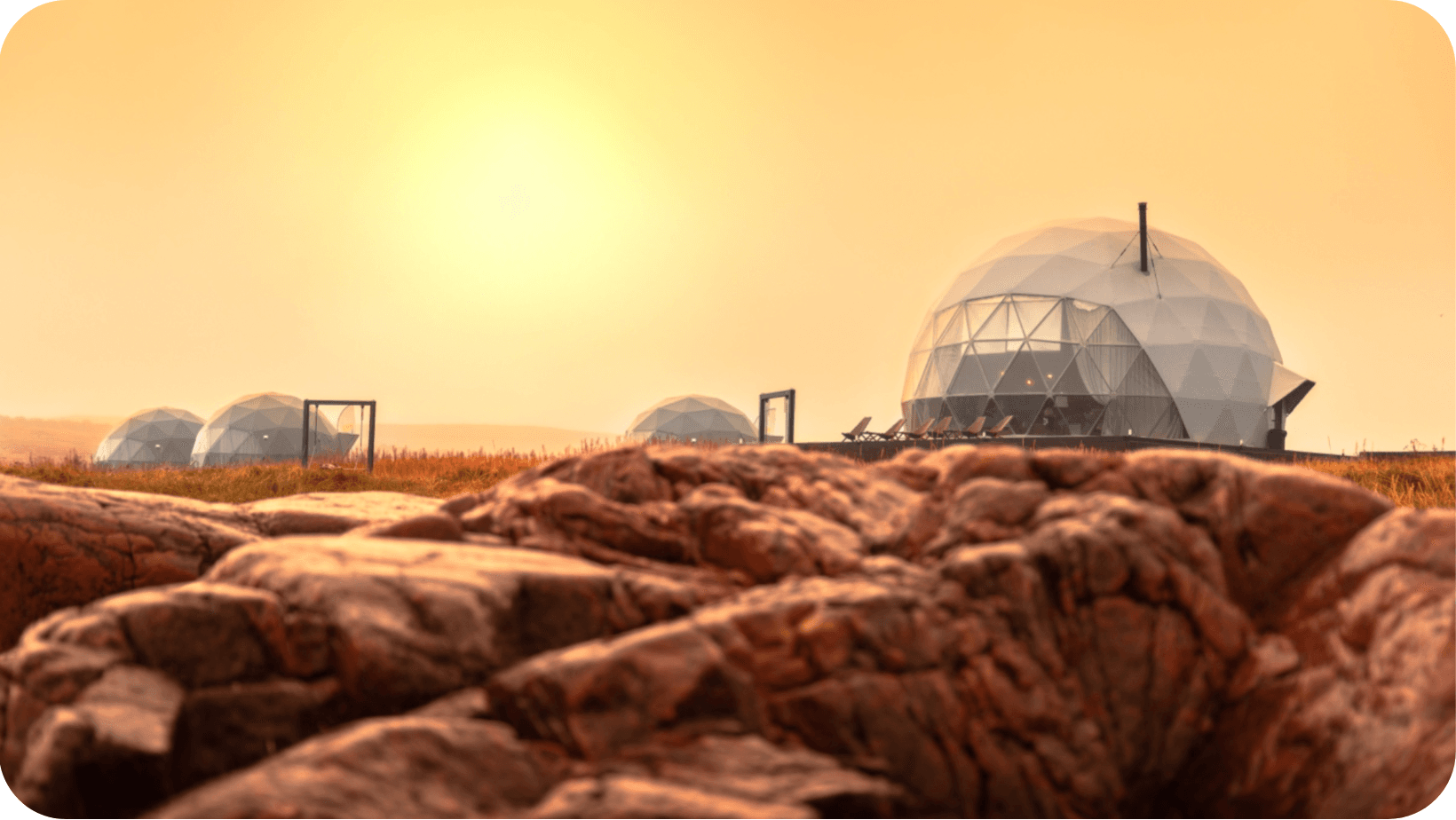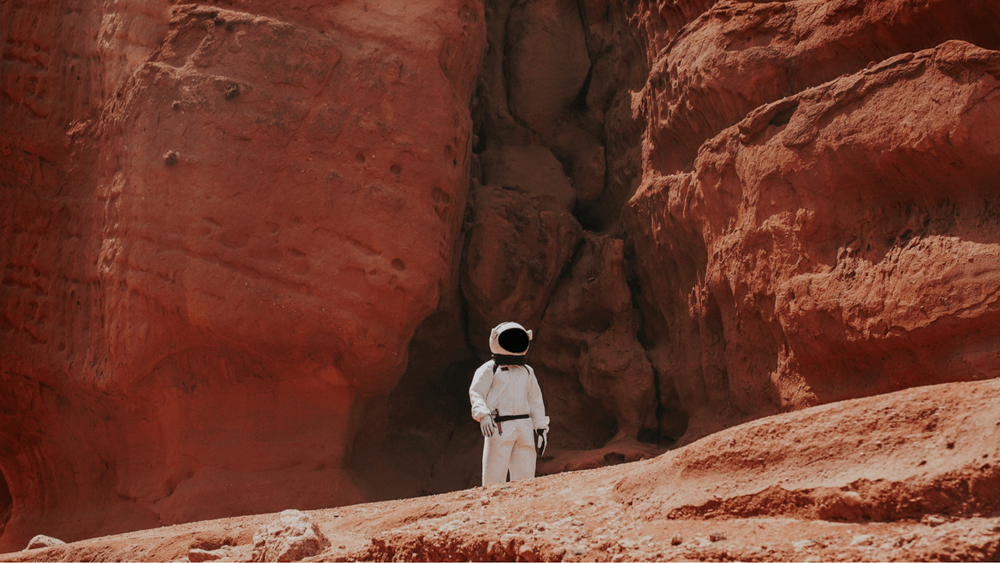Veganism on Mars: Cultivating plant-based diets in outer space?
The future of food production is in space. As farming crops on land becomes more challenging with our changing climate causing droughts and floods, scientists are looking upwards for the future of food.
If growing food in space, the food would be plant-based because the conditions in space would not be sufficient to have grazing livestock, let alone address the number of plants it would take to sustain these animals. The latter highlights this earthly ignorance of how 77% of soy is fed to livestock, with just 7% used directly for human food products. The future of plant-based-in-space therefore points towards a new beginning for plant-based farming.
Plant-based space
Plants are already being grown in space. NASA have created The Vegetable Production System, known as Veggie, which is a garden that resides in their space station. The Veggie garden is around the size of a small suitcase and can hold around six plants. They are grown in a ‘pillow’ filled with a clay-based growth media and fertiliser. The ‘pillows’ help distribute water, nutrients, and air in a healthy balance around the roots.
Plants use light to guide growth in the absence of gravity. A bank of light-emitting diodes (LEDs) above the plants produces a spectrum of light enabling the plant to grow.
Veggie has grown a selection of plants, including Chinese cabbage, Mizuna mustard, red Russian kale and zinnia flowers.
However, although providing foundations for the future of growing plants in space, expansion is needed to create more plants to prepare for future generations. As Earth becomes less habitable, should we look towards another planet for the future of our food?
Mars and spacey salads
Most planets cannot sustain life, mainly due to their temperature. Venus, for example, can get as hot as 471℃ and has a dense atmosphere at a pressure that is 91 times the pressure found at sea level on Earth. Mercury’s surface temperatures can reach a scorching 450℃.
Mars, however, although with fluctuating temperatures between 20 degrees Celsius and -153 degrees Celsius, proposes a more promising environment for growing plants. With its soil thought to be rich in iron, it makes it ideal for growing leafy green vegetables such as lettuce and kale. Mars’s atmosphere is mainly carbon dioxide, which plants need to turn into oxygen.
Plants on Mars would require less water, due to its gravity (which is approximately 38% that of Earth’s), and because the soil can hold more water than on Earth it would drain slower into the soil.
However, certain conditions would make it difficult to grow plants on Mars. Although next to Earth, its distance from the sun, at around 50 million miles, makes it much colder.

Dmitry Grachyov/Unsplash
Looking further afield… or a planet
Elon Musk has acknowledged the practicalities of growing food in space and that keeping livestock would interfere with that. He states how he wants to give people ‘free choice’, interestingly, but not unsurprisingly, failing to acknowledge the choice of the animals not to be killed. Encouragingly, however, Musk also addresses some of the issues (although ignoring the ethics) of keeping animals in space, thus leaning towards a plant-based future in outer space.
Musk states, "I'm a big fan of free choice for any future Martian colony. That said, it is likely that early Mars colonists would have a mostly vegetable diet, because of the energy and space needed to raise farm animals."
The president of PETA, Ingrid Newkirk, illuminates the issues present with animal agriculture and its damaging effects on the environment:
"If Elon Musk's vision of a colony on Mars comes true, the last thing those people will need is the disease and destruction that results from eating animals, whether you're settling into your new Martian home or staying here on Earth, going vegan is the best way to ensure that you'll be able to enjoy the world around you for as long as possible."
The disease and destruction inherent to agricultural farming is a key factor in ensuring that cultivating on Mars is done correctly - with a plant-based approach. After all, some pandemics on Earth appear to have been caused by eating animals, so why not start afresh and create a plant-based planet?
Until we’re all on Mars, we’ll be obsessing about what Earth’s restaurants have to offer. Check out Jack the Falafel: a delicious lunch spot in Bristol, and learn more about animal agriculture here.
